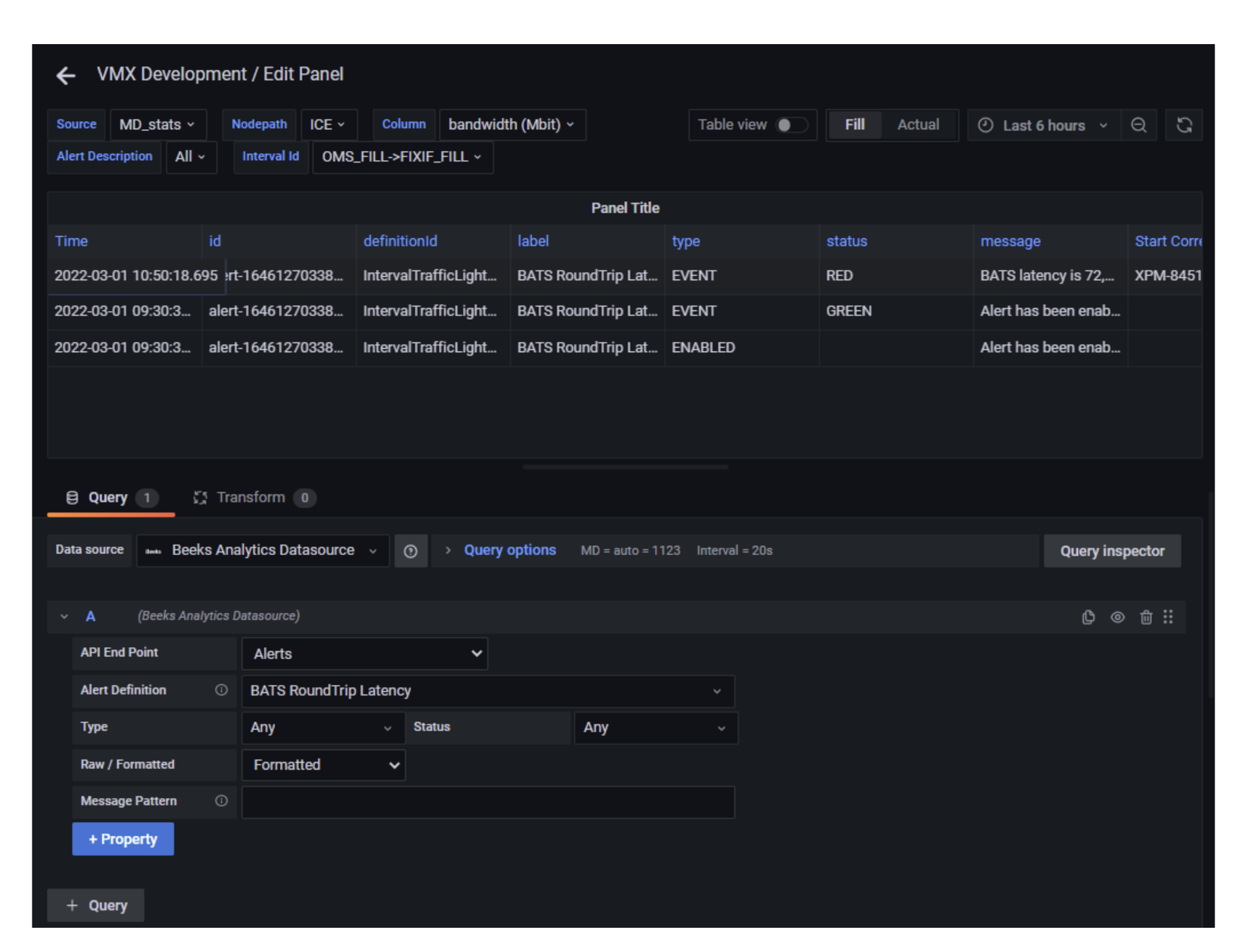The Alerts endpoint allows you to query all alerts generated on the Analytics appliance within a given time-frame.
The following steps assume that you have previously created a panel and added the Beeks Analytics data source.
Complete the following fields:
API End Points: Select Alerts.
Stream Results: See Configuring query results section.
Alert definition: [Optional] Select a definition to filter the data by the definition. Supports variable values.
Type: [Optional] Select a type to filter the data by alert type. Supports variable values.
Status: [Optional] Select a state to filter the data by state. Supports variable values.
Raw / Formatted: [Optional] Select Raw to display raw data, or Formatted to display formatted data in the panel. Note that formatted numbers may contain commas and therefore will not be treated as numbers by Grafana.
Query ID: Enter the ID of a canned query that was already created. See Canned Queries section.
Message Pattern: Enter a message pattern for the alert. Populate this field to return Alerts matching the given string, either by providing the string (e.g., "Service timeSeriesManager health check passed." will return all Alerts that match this text) or by using an SQL regex search (e.g., "%timeSeriesManager%" will return all Alerts that mention timeSeriesManager.)
Property: Enter a searchable property for this alert in the format [property]=[value]. Use this to return only Alerts that contain the specified name/value pair(s) of valid searchable properties. Note that the list of searchable properties for a given Alert is configured in the Alert configuration.
+Property: Add another searchable property.
Alternatively, the Alert Definition, Type and Status selections can be replaced with dashboard variables. Any configured dashboard variable should appear in the drop down selection prefixed with variable. See Using dashboard variables in queries for more information.
The panel will refresh and display the alerts that correspond to the options you've selected. If you have used variables, any changes will trigger a re-run of the query with the new value.
See also Querying the Alerts Status endpoint, and Querying the Anomalies endpoint.

